Charlie Musselwhite is a blues-harp player who got his start in Chicago before moving to San Francisco and being embraced by the counterculture scene. His 1967 debut album Stand Back! is considered a classic, and he has released over twenty more albums since then. A Blues Hall of Fame inductee, Musselwhite has also recorded with INXS, Ben Harper, Cyndi Lauper, and John Lee Hooker. Plus, he provided inspiration for Dan Aykroyd’s character in the Blues Brothers.
This interview was for a preview article for noozhawk.com for Musselwhite’s concert with John Mayall at Discovery Ventura on 5/8/16. It was done by phone on 4/30/16. (L. Paul Mann photo)
Jeff Moehlis: What can people look forward to at the upcoming concert?
Charlie Musselwhite: Good time blues! You can dance to it or you can listen to it, or if you’re talented you can do both.
JM: How long have you known John Mayall?
CM: Gosh, I must’ve me him the first time, I think, in the late-70’s. I’ve known him a long time. He’s always been a real nice guy – I’ve liked him personally, and his music, too.
JM: When you were young, you found your way to Chicago. What was the Chicago blues scene like when you arrived?
CM: It was wild! Everybody was there. It was a huge, really rich blues scene in Chicago. Howlin’ Wolf, Muddy Waters, Sonny Boy Williamson, Little Walter – they were all there. And I’m just saying very few of them. A lot of names people wouldn’t even know now. You could hear live blues all over the South Side and the West Side of Chicago about any night of the week. It was just great.
JM: You formed a particular bond with John Lee Hooker. How did you meet him, and what was he like?
CM: Well, John lived in Detroit, but he would come to Chicago regularly to perform. I was already a big fan of his from hearing him on the radio and having his records when I lived in Memphis. So I was really looking forward to meeting him. And when we met, it was like meeting an old friend. We were just immediate friends, like we’d always known each other. We were friends til the day he died. We’re still friends [laughs].
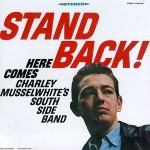
JM: Your first album Stand Back! is fifty years old now. What are your reflections on that album?
CM: When I recorded it, it was just sort of a lark, really. I didn’t have any idea it would do anything. I had no conception of what it would do. But it gave me a career. It put me on the road, and I’ve been working, playing music ever since. You know, today people spend months in the studio making an album. We cut that album in under three hours.
I had enough sense to at least put some tunes in there that I wrote. We just went in and knocked it out. Some tunes we did already, and some were just jams in the studio. We never had played them before or since. We just went in and had fun, just knocked it out.
JM: That album had Harvey Mandel playing guitar, and that was one of the first recordings he ever did. How did you team up with him?
CM: Harvey was one of the few guys I knew my age that went to the blues clubs. Our paths had crossed a few times, and he was mostly playing in cover rock bands. That’s where he made his money. But whenever he got a chance to take a solo, boy it was nothing like the cover he was doing [laughs]. He was playing all these wild blues, unlike anybody had ever heard before.
JM: I understand that you moved to San Francisco after that album. Did you find that you fit in with the San Francisco hippie scene?
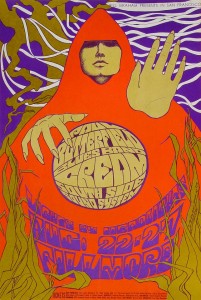
CM: It was a great scene. I mean, that album was being played on underground radio in San Francisco. Those disk jockeys back then could play anything they wanted to play. They’d bring records from home and play them. They weren’t given a list and told, “This is what you play.” It was totally free, underground radio. That’s how I got played on the radio. They somehow discovered me, so I had an audience. That’s why they had me come out to San Francisco.
I came out in ’67, and it was just wild [laughs]. I wasn’t really a hippie myself, but I really enjoyed their perspective on life and living and enjoying life. They accepted me. They were wide open to all music. You might go to somebody’s apartment, and they might be playing records by me, and maybe Ravi Shankar, and Count Basie, and Country Joe and the Fish. They liked everything that was good.
JM: Do you remember the first concert you played in San Francisco?
CM: The first gig I had was at the Fillmore with Cream and Butterfield [The Paul Butterfield Blues Band]. We had a great time. I already knew Butterfield and [Mike] Bloomfield – they were good friends. I met Eric Clapton there, then. Many times Bill Graham was recorded as saying that was one of his favorite billings.
JM: Fastforwarding a bit, you played with INXS, on their song “Suicide Blonde”. How did that come about?
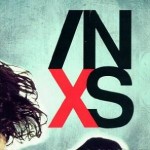
CM: I was in Australia doing a tour. I was in my hotel one day and the phone rang, and it was somebody saying, “We understand that you’re coming to Sydney. We’re in the studio recording, and we’d like it if you came by and did a couple of numbers with us.” I said, “OK…” [laughs]. They told me that their name was INXS. I’d never heard of them, but when I got off the phone I asked around. I said, “Who’s this INXS?” They said, “You’ve never heard of them?” I said, “No.” “Well, they sold only 15 million records last year.” [laughs]
So I went to the studio, and they were just as nice as they could be. It was just really great. We had a great time. I think I’m on at least one other tune, maybe two on that album. I don’t remember now. But it was a good time. Sometimes when I play Sydney if they’re not touring somewhere, they’ll come by and see me. Real good people.
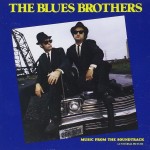
JM: Is is true that you provided inspiration for Elwood Blues, Dan Aykroyd’s character in the Blues Brothers?
CM: That’s true. I’ve read interviews with him where he said that, and he’s told me in person more than once about how he used to see me when he was in college. I would go to play some bar or club that he used to frequent when he was in college. I didn’t know him then, but he would see me there. He was interested in blues, and he picked up on what I was doing and was dressing kind of like me. I didn’t wear a hat, and I didn’t have handcuffs for my harp case, but I’d wear a black suit back in those days and had my hair slicked back and wore shades [laughs]. So he kind of got the look from me, a little bit.
JM: I saw you perform with Hot Tuna in Santa Barbara back in 2011. Did you have fun playing with those guys?
CM: Oh, it was a ball! I really liked all those people. Jack Casady, every night I’d wait for his bass solos. I loved his bass solos – they just killed me. I had a lot of fun. It was a really good rapport with everybody, and we had fun with each other, playing together personally and musically.
JM: What are your musical plans for the near future?
CM: I’ve got several irons in the fire, as you might call it, ideas to work on. One thing is that Ben Harper and I have an album that’s half done. It might take another year, maybe two years before we finally get around to finishing it, because we’re both so busy. I’m looking forward to that.
And I’m doing a tour with Cyndi Lauper – she’s a good friend. I’ll be opening for her on a tour. I think we may be in your area [Arlington Theatre on September 28]. I won’t be able to do her whole tour, because I have to leave and go finish other things I’ve already got booked, but I’ll be on a lot of dates with her.
JM: You played with her when she did a blues album a couple years ago, right?
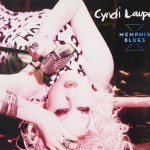
CM: It was called Memphis Blues. She recorded it in Memphis will all Memphis players. And we toured the world [laughs]. We used to do “Girls Just Want To Have Fun” with a harmonica solo. I can’t say enough good about her.
JM: How did you connect up with her?
CM: I had never met her before. I didn’t really know her music that well. She wanted to do a blues album because she had started off doing blues, and always wanted to return to doing blues again, and finally thought it was time. She had this idea for Memphis Blues, and using Memphis musicians, and that’s where I met her.
When we went out on the road we were doing those blues tunes, plus we started doing her hits, but we blues’d them up. When we started rehearsing her hits, I remembered hearing those coming out of my daughter’s bedroom. So then I realized who she was, but I didn’t know her by name, really. She’s really a lot of fun to be on the road with. A great performer, and a really compassionate person, a good person.

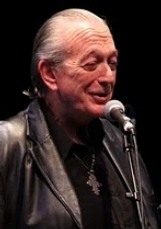
Discussion
No comments for “Interview: Charlie Musselwhite”